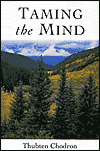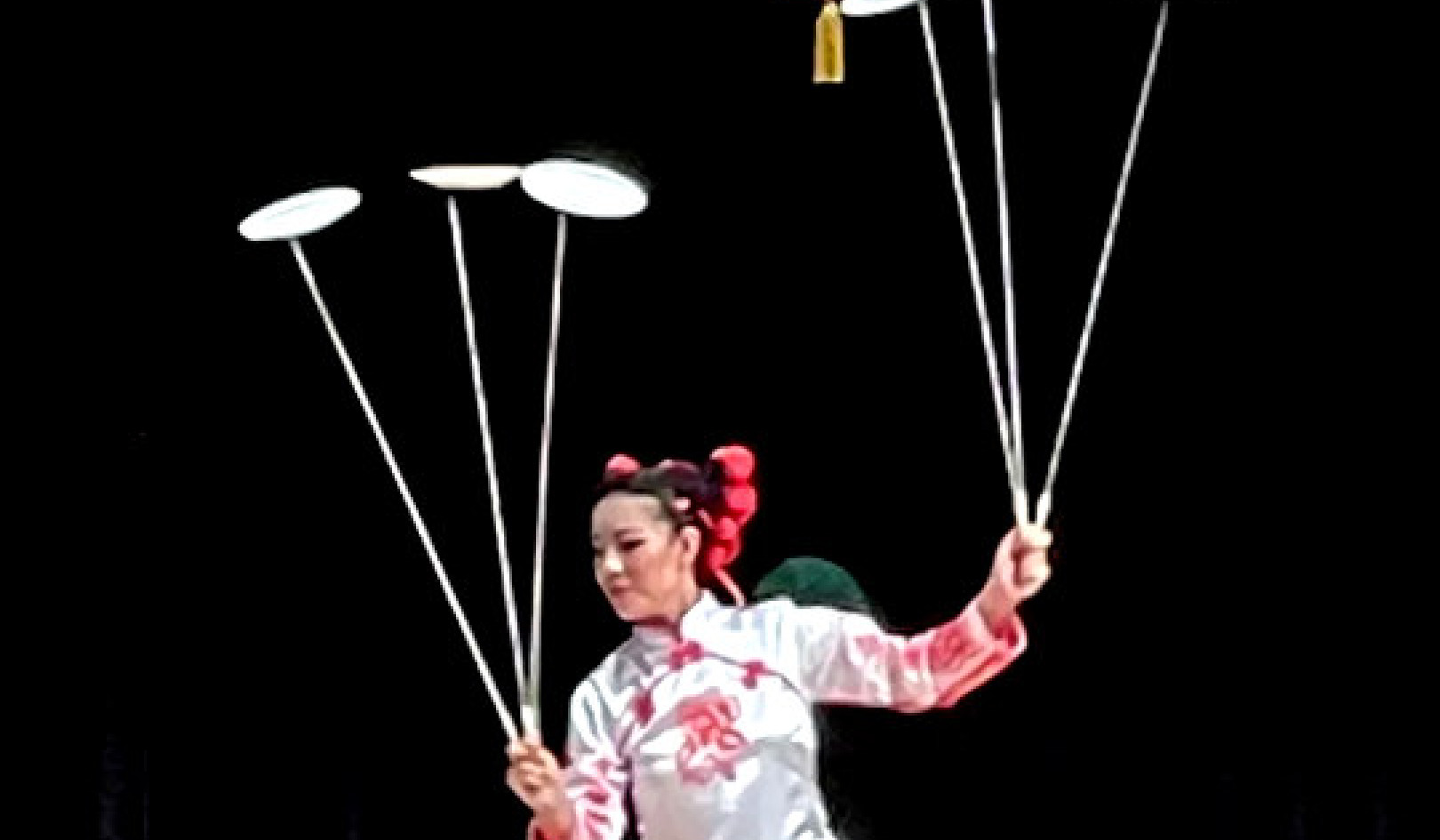
We have a precious human life with the potential to develop love, compassion, and wisdom limitlessly. How do we use that potential? What occupies our mind most of the time?
When observing our mind, we may notice that much time is spent ruminating about the past and the future. Thoughts and emotions twirl around, seemingly of their own accord, but sometimes we must admit to churning them up or at least not making the effort to counteract them. What do we ruminate about and what effect does it have on our life?
Thinking of Past Hurts & Disappointments
One big topic of rumination is past hurts. "I was so hurt when my spouse said I was stupid." "I worked so hard for the company, but they didn't appreciate me." "My parents criticized the way I look." We have an excellent memory for all the times others have disturbed or disappointed us and can dwell upon these hurts for hours, reliving painful situations again and again in our minds. What is the result? We get stuck in self-pity and depression.
The Present: Anger? or Anger Management?
Another topic is past anger. We repeatedly go over who said what in a quarrel, analyzing its every detail, getting more and more agitated the longer we contemplate it. When we sit to meditate, concentrating on the object of meditation is difficult. But when we reflect on an argument, our concentration is great!
In fact, we can sit in perfect meditation posture, looking peaceful externally but burning with anger inside as we single-pointedly remember past situations without getting distracted for even a minute. When the meditation bell rings at the end of the session, we open our eyes and discover that the event we spent the last half hour contemplating is not happening here and now. In fact, we're in a safe place with nice people. What is the effect of ruminating on anger? Clearly, it's more anger and unhappiness.
The Past: Feelings of Being Misunderstood
When we ruminate on feelings of being misunderstood, it is as if we were chanting a mantra, "My friend doesn't understand me. My friend doesn't understand me. We convince ourselves of this; the feeling becomes solid, and the situation looks hopeless.
The result is that we feel alienated, and we unnecessarily back away from those we want to be close to because we're convinced they never will understand us. Or, we may spill our neediness all over the other person in an attempt to make him understand us in the way we want to be understood.
The Past: Happy Memories and Nostalgia
All of our ruminations aren't unpleasant, though. We can also spend hours recalling past pleasurable events. "I remember lying on the beach with this wonderful person who adored me," and off we go on a fantastic fantasy. "It was so wonderful when I won that reward and received the promotion I wanted," and the real life situation appears like a movie to our conceptual mind. "I was so athletic and healthy. I could throw a ball like no one else and catch the passes no one else could," and happy memories of past victorious sports events glide through our mind. Consequently, we feel the tinges of nostalgia for a past that is long gone. Or, dissatisfied and anxious, we seek to re-create these events in the future, which leads to frustration because circumstances have changed.
Meditators are no exception to this. We hold on to a wonderful experience in meditation and try to recreate it in future sessions. Meanwhile, it eludes us. We remember a state of profound understanding and feel despair because it hasn't happened since. Accepting an experience without getting attached to it is hard for us. We cling to spiritual experiences in the same way we previously grasped at worldly ones.
The Present: Opening our Hearts Now
A spiritual practitioner may remember previous illuminating moments and dream of future exotic situations, replete with fully enlightened teachers and blissful insights, but in fact, practice can only occur now. The person in front of us at this moment represents all sentient beings to us. If we're going to work for the benefit of all sentient beings, we have to start with this one, this ordinary person in our everyday life. Opening our hearts to whomever is before us requires discipline and effort. Connecting with the person in front of us necessitates being fully present, not off in the past or in the future.
Dharma practice means dealing with what is happening in our mind at this moment. Instead of dreaming of conquering future attachment, let's deal with the craving we have right now. Rather than drowning in fears of the future, let's be aware of the fear occurring right now and investigate it.
Reprinted with permission of the publisher,
Snow Lion Publications. ©2004.
www.snowlionpub.com.
Article Source
Taming the Mind
by Thubten Chodron.
 We all want to have good relationships with others. Chodron offers practical techniques to help us gain a more spacious perspective on relationships, whether they be between lovers, parent and child, employer and employee, friends, or spiritual teacher and student. Guidelines are given for how to practice freeing ourselves from habitually blaming others for our problems and learning to be on the spot and take responsibility for our lives. This book describes how our mind/heart, not the external world, is the ultimate source of our happiness. We learn how to look at people and situations in an entirely new light.
We all want to have good relationships with others. Chodron offers practical techniques to help us gain a more spacious perspective on relationships, whether they be between lovers, parent and child, employer and employee, friends, or spiritual teacher and student. Guidelines are given for how to practice freeing ourselves from habitually blaming others for our problems and learning to be on the spot and take responsibility for our lives. This book describes how our mind/heart, not the external world, is the ultimate source of our happiness. We learn how to look at people and situations in an entirely new light.
Info/Order this book:
https://www.amazon.com/exec/obidos/ASIN/1559392215/innerselfcom
About the Author
Bhikshuni Thubten Chodron, an American-born Tibetan Buddhist nun, has studied and practiced Buddhism in India and Nepal since 1975. Ven. Chodron travels worldwide teaching and leading meditation retreats and is known for her clear and practical explanations of the Buddha's teachings. She is the author of Buddhism for Beginners, Working with Anger, and Open Heart, Clear Mind. Visit her website at www.thubtenchodron.org.
Books by this Author
at InnerSelf Market and Amazon




























